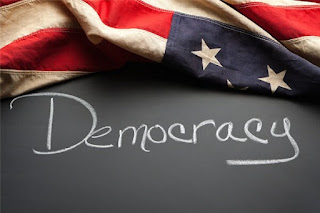David French
New York Times - Opinion
Originally published 18 Feb 24
Amid the constant drumbeat of sensational news stories — the scandals, the legal rulings, the wild political gambits — it’s sometimes easy to overlook the deeper trends that are shaping American life. For example, are you aware how much the constant threat of violence, principally from MAGA sources, is now warping American politics? If you wonder why so few people in red America seem to stand up directly against the MAGA movement, are you aware of the price they might pay if they did?
Late last month, I listened to a fascinating NPR interview with the journalists Michael Isikoff and Daniel Klaidman regarding their new book, “Find Me the Votes,” about Donald Trump’s efforts to overturn the 2020 election. They report that Georgia prosecutor Fani Willis had trouble finding lawyers willing to help prosecute her case against Trump. Even a former Georgia governor turned her down, saying, “Hypothetically speaking, do you want to have a bodyguard follow you around for the rest of your life?”
He wasn’t exaggerating. Willis received an assassination threat so specific that one evening she had to leave her office incognito while a body double wearing a bulletproof vest courageously pretended to be her and offered a target for any possible incoming fire.
Here is my summary of the article:
David French discusses the pervasive threat of violence, particularly from MAGA sources, and its impact on American politics. The author highlights instances where individuals faced intimidation and threats for opposing the MAGA movement, such as a Georgia prosecutor receiving an assassination threat and judges being swatted. The article also mentions the significant increase in threats against members of Congress since Trump took office, with Capitol Police opening over 8,000 threat assessments in a year. The piece sheds light on the chilling effect these threats have on individuals like Mitt Romney, who spends $5,000 per day on security, and lawmakers who fear for their families' safety. The overall narrative underscores how these violent threats are shaping American life and politics










